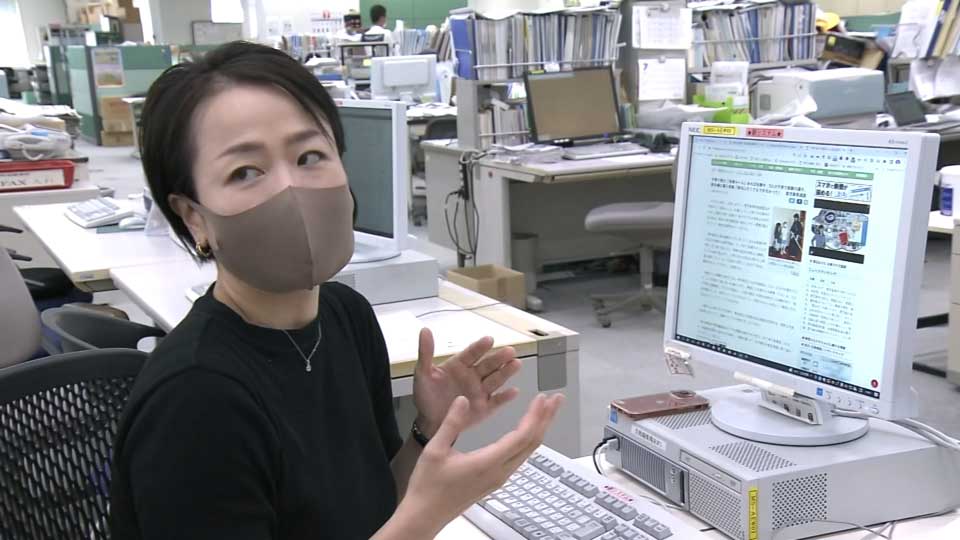About 130 reporters belong to the editorial department of the Minami-Nippon Shimbun in Kagoshima City. Just one in three are women. They include Akama Sayaka, who joined 16 years ago and currently plies her trade online.
Gender equality has become something of a crusade for Akama who has been on the job for over 15 years. In recent years, she's even started to question the decision-making of her senior editors.
Mothers and sports headline rejected
Akama recalls an article she wrote about a local kendo federation. Her headline -- "Mama swordsmen: Nursery room fosters full focus" -- was rejected on the grounds that not only mothers raise children.
Such opinions, she says, fail to understand the plight of many women who struggle to balance raising children or giving birth with other activities -- especially work.
"Wanting to be proactive and make your own choices is all well and good," says Akama, "but reality can be quite different. There are so many people who suffer because they can't give it their all and do both. It left me feeling bewildered."
Many other people in Kagoshima agree. An opinion poll the prefectural government conducted among residents points to a strong sense of unhappiness about gender inequality in the workplace and community.
Two years ago, Akama launched a team to publish a series of articles that coincide with International Women's Day each March 8. The reporters write about gender disparities in politics, education and even disaster management.

Harassment widespread in politics
Last year, they surveyed all of Kagoshima Prefecture's 74 female legislators out of over 700 legislators from prefectural and municipalities assemblies. Sexual harassment among constituents and council members seemed rampant.
"The women recalled remarks such as, 'If you let me touch you a little, I'll get you some votes.' I couldn't believe it," says Akama.
In another article, the team set out to investigate the different rules that apply to boys and girls in junior high schools. One of Akama's colleagues asked a teacher why ponytails were prohibited. The reply didn't appear to pay any consideration to the girls: "Because boys get excited about the nape of the neck."
The story struck a chord. The public reacted positively, and some of the school officials who were interviewed later revealed they had changed the rules.
"We raised the issue from the viewpoint that gender issues can even stem from a single school rule," says Akama. "Nothing will change unless we voice these problems in the press."
Official points finger at media
As for the press itself, Akama says tackling the subject has led to some harsh realizations. One of the team's reporters, for example, interviewed the prefectural governor who -- quite fairly -- pointed a finger right back at the local media.
"You say in your article that there are not enough female employees in the prefecture, but there isn't even a single female reporter assigned to the prefectural office," went the remark.
When Akama joined the newspaper, she was the only woman among her seven colleagues. Even today, only nine of the editorial office's 42 managers are female. The executive board has none at all.

"Most of the people I interview are middle-aged or older men," says Akama. "I had a colleague who once told me, 'Because you're a woman, you'll be treated well by your interviewees.' I never felt being a woman influenced anything like that."
Senior editors take note
But change appears to be on the horizon. "Gender issues are often difficult to recognize for men, and if there is an atmosphere in which women have not been able to speak out, then that is partly due to our lack of effort," says the newspaper's head of editorial, Kunihiro Takashi. "If there is a lack of awareness in Kagoshima, I feel we should sound the alarm."
And he can rely on Akama to do just that. She has set her sights set on expanding the team, so they can keep on changing the local mindset one story at a time.
"It's essential to create a society in which everyone can live easily. I'm happy to have a positive impact by appealing to the public," she says.

